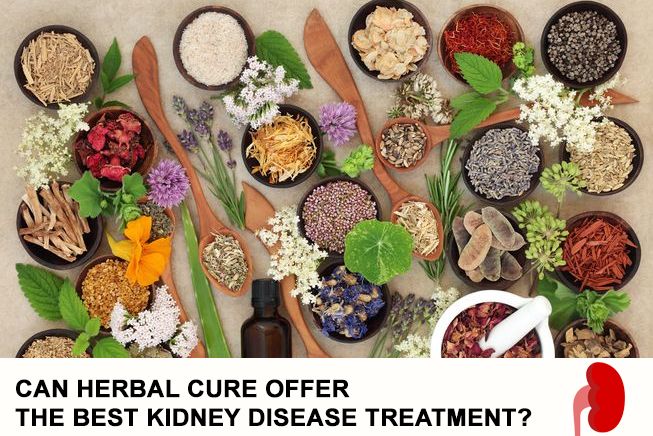
Kidney disease is a leading global health problem among millions of individuals. When the kidneys begin to fail, it can be overwhelming to sift through the treatment options. Conventional western medical approaches, such as dialysis or medication, are usually the first thought, however, others wonder if natural solutions, herbal remedies in particular, might provide a better or additive solution. So here we go! This is what the best herbal treatment for kidney disease can (and can’t) do for kidney disease, and I’m going to help keep things scientific, reasonable, and real.
Before we dive right into natural herbal cures for kidney disease, it would be pretty good if we could rewind a bit and give a little run-down on what kidney disease is. Your kidneys serve as the body’s filtration superheroes, removing waste and extra fluid from your blood, balancing electrolytes, and helping to regulate blood pressure. When they’re damaged by diabetes, high blood pressure, infections, or other causes, they can’t do these jobs as well as they should. That can cause symptoms including fatigue, swelling, difficulty urinating, or more serious issues over time.
CKD stages, in which there are mild (stage 1) to complete kidney failure (stage 5), have CKD as the progressive cause. Treatment can vary based on how advanced the cancer is, the cause, and the individual patient’s overall health. Existing treatments are aimed at controlling symptoms, slowing disease progression, and, in serious cases, at replacing kidney function with dialysis or by transplant. But is there a role for herbal remedies in this picture?
Herbal remedies have been used for centuries across cultures to treat all kinds of ailments, including kidney issues. The idea of using plants to heal is appealing for many reasons: it feels natural, it’s often less invasive, and it aligns with a holistic view of health. Plus, some people worry about the side effects of pharmaceuticals or want to explore alternatives that might support their body’s healing processes.
Herbs like dandelion, nettle, turmeric, and ginger often come up in conversations about kidney health. These plants are praised for their anti-inflammatory, diuretic, or antioxidant properties, which could theoretically support kidney function. But the big question is: do they work, and can they be considered the best treatment for kidney disease? Let’s look at some popular herbs used in the best herbal treatment for kidney disease and what research tells us about their potential for kidney disease:
While these herbs show potential, the evidence is mostly preliminary. Most studies are small, done on animals, or focused on specific symptoms rather than curing kidney disease outright. There’s also the issue of dosage, purity, and interactions with medications; herbs aren’t always as “gentle” as they seem.
Herbal remedies sound great, but they come with caveats. For one, the supplement industry isn’t tightly regulated, so the quality and potency of herbal products can vary wildly. Some products might even contain contaminants that could harm your kidneys further.
Herbs can also interact with medications. For example, nettle or dandelion might amplify the effects of diuretics, leading to electrolyte imbalances. If you’re on blood thinners, turmeric could increase bleeding risks. And for people with advanced kidney disease, some herbs might be too taxing on already struggling kidneys.
Another concern is the temptation to replace proven treatments with herbs. Delaying or skipping dialysis, for instance, in favor of an herbal regimen could be dangerous, even life-threatening. Kidney disease is complex, and no single herb (or even a combination) has been shown to fully reverse it or replace medical interventions.
So, are herbal cures the best treatment for kidney disease? Probably not, if we’re talking about replacing standard care. But they can play a valuable supporting role when used wisely. Here’s how to approach it:
Beyond herbs, other natural approaches might support kidney health. Acupuncture, for example, has shown promise in reducing CKD symptoms like fatigue and pain. Meditation and yoga can help manage stress, which is important since stress can worsen blood pressure and kidney strain. These aren’t cures, but they can improve quality of life.
Herbal cures offer a tantalizing glimpse into natural kidney disease management, and some herbs do have science-backed benefits for reducing inflammation, supporting fluid balance, or protecting kidney cells. But calling them the “best” treatment stretches the truth; there’s no evidence they can fully treat or reverse kidney disease on their own. The smartest path is a balanced one: work closely with your healthcare team, explore safe herbal options as complements, and focus on lifestyle changes that support your kidneys.

Certificate no- AH-2023-0186
JAN 05,2023-JAN 04,2026
"Ayurveda is not just a system of medicine; it's a way of life. Connect with us to embrace a lifestyle that nurtures your body, mind, and soul."
Book Consultation Now